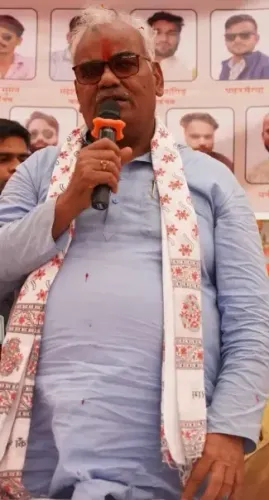Is Vitamin D Deficiency a Hidden Epidemic Weakening Health?

Synopsis
Key Takeaways
- Vitamin D deficiency affects 20% of the Indian population.
- Government intervention is necessary to tackle this health crisis.
- Proposed campaigns aim to raise awareness and promote healthy practices.
- Vitamin D is vital for overall health, including bone and immune function.
- Immediate action can prevent long-term health issues related to deficiency.
New Delhi, Oct 13 (NationPress) India is grappling with a serious health issue stemming from Vitamin D deficiency, as highlighted in a report released on Monday. The document calls on the government to address the absence of this essential sunshine vitamin, affecting one in five Indians.
The Indian Council for Research on International Economic Relations (ICRIER) and the ANVKA Foundation have prepared two vital policy briefs that outline a national strategy for the Ministry of Health and Family Welfare (MoHFW), alongside a specific action plan for Delhi.
These recommendations are grounded in a recently published study, which indicates that Vitamin D deficiency is a growing public health crisis in India, impacting individuals across various regions, age demographics, and income brackets.
According to Dr. Arpita Mukherjee, Professor at ICRIER and lead author of the reports, “Our suggestions focus on actionable measures that can be executed immediately through existing health networks, local collaborations, and awareness initiatives.”
Proposed initiatives include the launch of a “Vitamin D Kuposhan Mukt Bharat” campaign, modeled after the “Anaemia Mukt Bharat” program, to raise awareness, promote sunlight exposure, encourage the consumption of fortified foods, and make testing and supplements accessible.
The report advocates for a nationwide awareness campaign to create a multi-stakeholder platform aimed at integrating Vitamin D into current healthcare programs, using national survey data for targeted measures, and establishing standardized guidelines for the testing and treatment of Vitamin D deficiency in India.
Additionally, the policy brief directed at the Delhi government urges immediate action through mass testing, public awareness campaigns, and the incorporation of Vitamin D supplementation into existing health programs.
It also suggests that ASHA and Anganwadi workers receive training and that supplements be readily available.
Dr. Mukherjee asserts, “Delhi can serve as a model city for a ‘Vitamin D Kuposhan Mukt Bharat’ initiative with targeted action.”
The authors stressed that addressing Vitamin D deficiency aligns with the government’s broader goals of Ayushman Bharat and preventive healthcare.
“Vitamin D deficiency is more than a minor health issue; it represents a hidden epidemic that undermines the foundation of good health,” remarked Chaudhry, Founder & Director of ANVKA Foundation.
Experts note that Vitamin D deficiency impacts everything from children's growth to women's maternal health and elderly mobility, yet it is one of the easiest deficiencies to prevent and treat if action is taken promptly.









